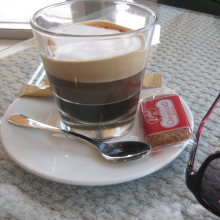February 23, 2016: Middle Eastern Music Show #6 Podcast.
Welcome, newcomers to these podcasts. My Middle-Eastern shows include music from Central Asia and Africa, as well, which is similar in style or sound to music from the Middle-Eastern countries. Sometimes, music from The Balkans is also included.
Playlist:
1. Je Veux Vivre (I Want To Live), 3:13.
2. Nkhalik Fi Hwak, 4:42.
3. Elhob, 5:14.
4. Lafera9e Se3ib, 5:52.
5. Lamouni (Ligharou Meni), 4:36.
6. Chapandozi Qalandar (Vagabond Tunes), 3:58.
6. The Incredible Tale Of Love, 10:48.
7. Tichareten, 6:20.
8. Ayam Matetawadsh, 3:49.
9. Azima Lela, 4:38.
10. Bagishlaram Seni, 5:20.
11. Ancient Sky, 6:56.
12. Northern Lights, 3:08.
13. Je Chanterai Toujours La Musique Orientale, 8:30.
14. Shirin Shirinam (Dear (Sweetheart)), 5:09.
15. Sari Gelin, 4:45.
16. Your Love Is My Cure, 6:49.
17. Lalaii (Lullaby for the Awakening), 3:48.
18. Valeh, 4:15.
19. Tamanaye Vesal (How long have you longed for union with the One), 5:35.
20. Hanina, 4:43.
21. Hayr, 4:50.
22. Aube Rouge A Grozny, 4:18.
23. Bektob Esmak Ya Habibi, 4:41.
24. La Ta Zhoulih, 4:57.
25. Resistance, 5:26.
26. Taxim & Tsifteteli, 4:58.
27. Desse Barama (Peace), 4:36.
28. Kurd, 2:26.
29. Dis Moi Pourquoi, 3:44.
30. Maandi Hadja Fi Nass, 5:56.
Total Time, 2:36:42 .
.
.
.
.


 .
.